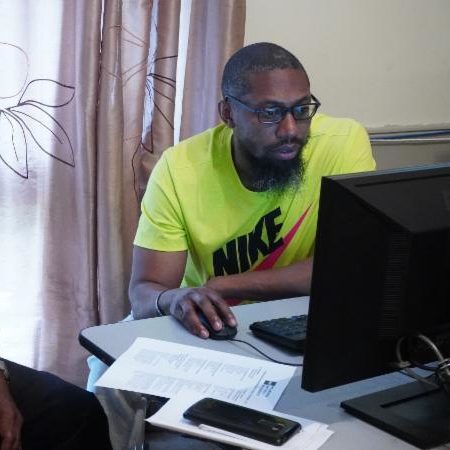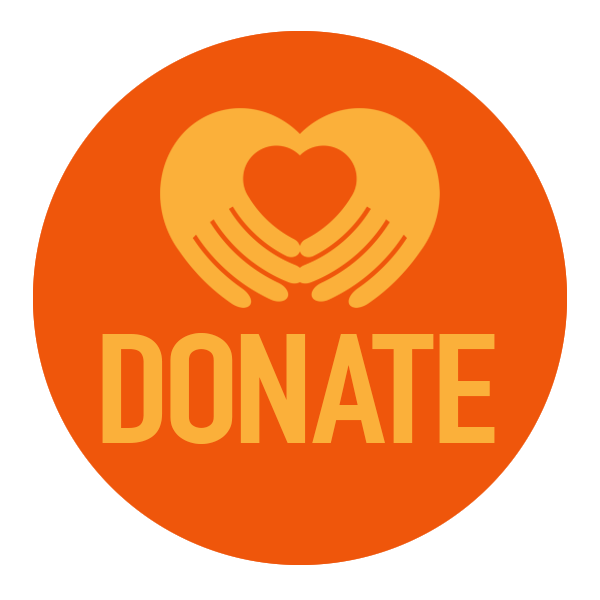What is a pardon?
A pardon means you have been forgiven by the government for the crime you committed, and leads to having your convictions erased from your record. After a pardon, you don’t have to “check the box” when filling out an application, nor do you have to tell anyone that you were ever convicted. There are SO many ways that a pardon can help expand your opportunities and create a better life for yourself and your family. For more detailed information about pardons in Pennsylvania, visit our Self Help page.
What is a Pardon Coach?
It’s now much easier to request a pardon—and, since 2019, more than 8 out of 10 applicants who apply get a hearing. The key to success is the application. Almost everyone could use help telling their story of how they have changed since they made contact with the law. If you’re willing to be a volunteer Pardon Coach, the training is free and takes only an hour. Once you are trained and have taken your first client, you’ll get an extensive tool-kit to make your job super easy. Check our Events page to find the next training program.
EVENTSPARDON COACH TOOLKITPardon Hubs
You don’t need to go downtown, or to a lawyer’s office, to get 1:1 help with your pardon application. PLSE has been working with community non-profits to teach them how they can help you fill it out!
Here’s a current list of places and organizations you can go to for information, flyers, and other help:
If there’s a community center in your neighborhood that you think would be good for us to train, tell them to contact us! We are running training programs regularly using ZOOM and the training only takes an hour, or less! Visit our EVENTS page for the next training program.
UPCOMING EVENTSECONOMY LEAGUE ANALYSIS 2020
Pardons can contribute to economic development in
communities across the commonwealth
READ THE REPORTWhy are pardons important?
Pardons can have a significant positive impact not only on the lives of recipients, but also on the economic development of their communities.
Watch People Change to see the harm that criminal records inflict on people who are trying to do their best – and watch Why is a Pardon Important? to hear from those who have gone through the pardon application process
THE ISSUE
If you are ever arrested in Pennsylvania and charged with a crime, even if you never had to go to court on it or if you were found not guilty, you have a criminal record. Every crime you were charged with is permanently available to the police and prosecutors, and every conviction is available 24/7/365 for free.
There are laws against using that information to discriminate against people, but it happens all the time: 90% of employers, 80% of landlords, and 67% of colleges screen for criminal records. Criminal records are used to exclude people from thousands of jobs, professions, schools and even trades that are licensed by the state where “good moral character” is a requirement for admission.
The only way to get something taken off your (permanent) criminal record is for a Judge to Order that it be erased (expunged). A Judge can do this for arrests that did not result in a conviction, and for convictions for summary offenses (like disorderly conduct, obstructing a highway, retail theft (under $150), underage drinking, public drunkenness) if you’ve not been arrested for more than 5 years. For anything else – and for all misdemeanor and felony convictions, even if they were decades ago – you have to get a pardon from the Governor.
People change; records don’t. As the executive director of the Fels Fund recently said, “It’s crushing that what someone was charged with 10 or 15 years ago, very often when they were young adults, can completely wipe out everything that person has done since then to improve themselves, even if they have accepted responsibility.”
THE VISION
The Pardon Project was created to give people who have improved themselves a realistic chance to stop being defined by the worst things they’ve done in their lives.
While lawyers can be very helpful, they are out of reach for most people with modest family incomes. What’s needed is information, guidance, help and support along the way, and this can be done by anyone who has been trained, who is not afraid of government forms, and who has the desire to help others. That’s where PLSE comes in.
Today, the Board of Pardons merit reviews only 600 applications per year from across the whole state. PLSE envisions a system where the Board receives thousands of well-written applications each year just from low-income Philadelphians, where the state responds more efficiently and successfully with investigative strategies better suiting the variety of situations presented in the applications, and where a realistic hope of civic forgiveness within a reasonable period can be offered to all those who have demonstrably transformed their lives, regardless of race, ethnicity, or economic status. PLSE sees this not only as a matter of social justice, but as a crucial component of community economic development in a city and a state that desperately needs all its residents producing at their highest and best abilities.
Path to a Pardon
Obtain pardon application
The application is now FREE and available at: www.bop.pa.gov. You can also write them a letter and ask for it. The form includes instructions on how to fill it out, as well as saying what records you need to get from the court about your trial and conviction.
Gather things that show who you are today
The most important parts of a pardon application are (1) “owning” what you did, being honest about it and showing them you are sorry for having broken the law and hurt other people, and (2) showing you have changed and why you deserve a second chance.
So start with #2! Have you gone back to school and gotten your GED or Associates Degree? Completed a training program for a job or a license? Been promoted at work? Think about people who would be writing a letter saying you deserve to be pardoned, and why. These things can be attached to your application, and are VERY VERY important!
And the MOST important part of the Application is Part 5. It’s called “OPTIONAL PERSONAL STATEMENT” but everyone should do this. It’s your story. It will take you some time to write it. Maybe read it or show it to a friend. Make it the best it can be!
Get your criminal record
You can go online to get the public version. Just Google “criminal docket PA” or click here, and fill in the blanks (see Video #1 for help!). But you will also need to go to the courthouse to get your FULL criminal history, since there will be things (like arrests that did not end up in a conviction, or misdemeanor convictions that are more than 10 years old) that are not public – and you need them all to apply for a pardon.
Complete the application
The form looks simple – it’s only 4 pages long plus a signature page! – but there are a couple of things you’ll want to know to do a good job filling it out.
REALLY IMPORTANT: Be sure you FILL IN EVERY BOX – write “N/A” if it doesn’t apply to you.
Send us an email to get started, to ask questions, or to review your Pardon Application before you send it in. We will help if we can.
If you don’t have a lawyer, be sure to name someone (in Section 2 of the Application) who the Board can contact if they can’t reach you. The form says “Representative” and if you have a lawyer, you should put their name and info there; but if you don’t have a lawyer, name a “back up” – a member of your family, best friend, employer, doctor – someone who will know how to reach you if you move or change your phone number.
Once the Board’s staff reviews your application and agrees your application is complete, you will receive an Application Number. BE SURE TO KEEP THIS LETTER AND PUT YOUR NUMBER ON ANYTHING ELSE YOU SEND THEM LATER.
Interview with a Parole Agent
About a year after your application has been filed, you will receive a letter from the Board of Probation and Parole, telling you that you will soon be interviewed and should get information ready to give them. You can see the letter and information requests here. For sure, you should review your application and make sure it is up to date. You can also get more letters of recommendation and so on.
The Parole Agent will also be checking with the prosecutor, the judge, the victim, your employer, and maybe others, to find out what they think about you and your application.
Board “Merit Review”
The Parole Agent will write up what he has learned and write a memo to the Board of Pardons. The Board then meets, reviews all of the applications, and decides who should get a hearing. The board will want to see that you’ve really changed since your last conviction. Here’s the good news: there are 5 members of the Board of Pardons, and ONLY TWO HAVE TO VOTE FOR YOU for you to get a hearing!!!
Hearing before the Board of Pardons
If you get the 2 votes, you’ll be invited to come to Harrisburg and be interviewed by the full Board of Pardons. If you have gotten 5 votes at the “merit review” (step 5), you won’t even have to go! The hearing is held in a big courtroom that is open to the public – you’ll be given time to say something and you can ask others to say something too, and then the prosecutor and victim and others will be given a chance to say something. THAT SAME DAY, THE BOARD WILL VOTE ON YOUR CASE! And, here’s the really good news: YOU ONLY NEED 3 VOTES IN YOUR FAVOR. (If you have been sentenced to life in prison or death, you need all 5 votes.)
Governor’s Review
The Governor only gets to review the applications of the people who get recommended by the Board of Pardons; but THIS Governor (Governor Wolf) is APPROVING OVER 95% OF ALL RECOMMENDATIONS FOR A PARDON!
Next Step: Expungement in Court
The Pardon is an official “forgiveness” for having committed a crime, and allows you to check the box “NO” when asked if you were ever arrested or convicted of the crime you got pardoned for. But YOU STILL NEED TO GO TO COURT TO GET IT EXPUNGED BY A JUDGE! If you need help with that, let us know.
Contact Us
(267) 519-5323
info@plsephilly.org

